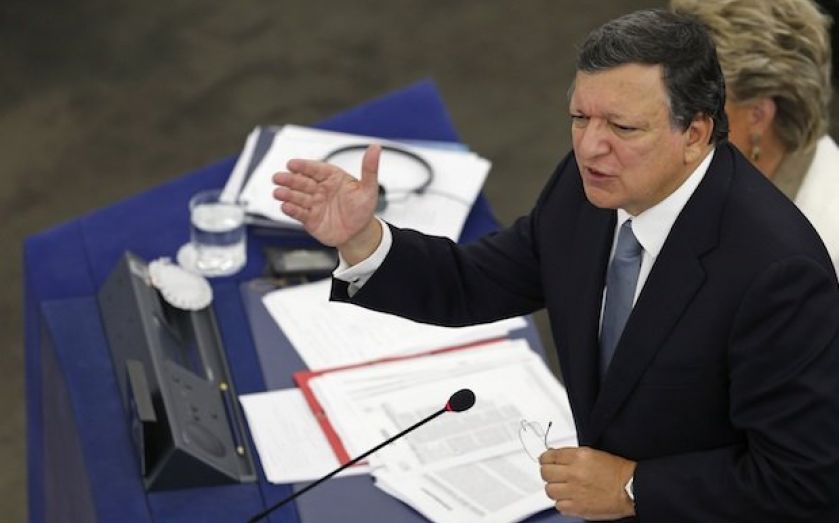A troubling marriage between the EU and big charities is damaging Europe

SHOULD government work hand in glove with charities? It’s a question that is becoming increasingly controversial. We usually think of charities as independent bodies, funded by voluntary donations in the pursuit of good causes. These are traditionally quite separate from government programmes – which is why they deserved our philanthropy. Yet the line that used to divide the voluntary sector from the state is being eroded.
An extraordinary symbiosis has developed, for instance, at the heart of the European Union between the European Commission and powerful non governmental organisations (NGOs) – often big international charities – that have become expert at extracting funds from government.
Every year, the EU spends some €7.5bn (£6.3bn) on these organisations, and they are ever more dependent on taxpayer largesse. The relationship has become vital for each side. Eight of the “Green 10” – a coalition of some of the biggest environmental NGOs – receive at least one third of their income from the Commission, and five get more than half. In return, NGOs offer badly needed kudos for the EU’s activities.
But to what extent does this happy marriage serve the real interests of Europe’s people? Helping Themselves, a report we recently published, suggests that the relationship has become seriously unhealthy. Using data painstakingingly extracted from the opaque statistical corridors of the European Commission, Zilvinas Silenas and Adolfas Mackonis show that the money is often used to oppose stated EU policy, and works against the expressed priorities of EU citizens. As such, it actually damages Europe’s economy and undermines civil society.
About a third of the money spent directly on NGOs by the Commission is taken by a small group of two dozen large NGOs with big lobbying offices in Brussels. Increasingly reliant on EU money, they have a direct interest in the EU increasing its revenues, and they lobby accordingly. Oxfam, the biggest recipient of EU charitable funds in 2010, has lobbied in favour of the EU Financial Transactions Tax, as have NGOs like Health Poverty Action and War on Want, which received between 28 per cent and 20 per cent of their income in that year from the EU.
Other favourite causes for these NGOs are higher tariffs, nationalisation, higher fuel taxes, more trade regulation, less competition and higher public borrowing. The Commission is fostering a cuckoo that seems implacably hostile to the core principles of the EU, and its central function of wealth creation in a single market.
One of the EU’s justifications in funding NGOs is that it wants to foster civil society. But in truth, for government to fund what should be voluntary associations is counterproductive. Our report shows that spending on NGOs does not match the priorities of real citizens. In the UK, for example, voluntary donations made by the public go in large part towards charities with a focus on medicine (32 per cent), religion (16 per cent) and children (11 per cent). This does not remotely coincide with EU spending on NGOs, which overwhelmingly (59 per cent) goes on overseas development.
This mismatch suggests that the EU is not only ignoring citizens’ priorities, but that its money also skews the aims and purposes of NGOs themselves. As charities become ever more dependent on government money, they adapt their activities accordingly by undertaking projects they think might win them grants, rather than what the public is interested in.
Like two dancers tied together as they stagger across the floor, the EU and its NGOs have bound their priorities, their policies and their outlook together – to the exclusion of citizens and voters.
What can be done to break the unhealthy link between lobbying and funding? First of all, if the EU wants to outsource its work, it should not restrict itself to NGOs. All manner of businesses, consultancies and enterprises should be free to bid to save the planet. A strong tendering process, open to all and with clear incentives for success, is what counts.
Our report also makes other suggestions. No charity should receive more than 40 per cent of its money from government sources. Repeat year-on-year grants should be curtailed to discourage the professionalised lobbying and grant application industry. Money should not go to NGOs with politicians or senior officials on their boards.
Government at all levels is increasingly asking charity to do its work for it, and charities are increasingly entering politics. Neither trend is good for society, or indeed the institutions in question. They would do well to pull apart before the dance gets out of hand.
Tom Miers is director of New Direction. Helping Themselves is available from www.newdirectionfoundation.org